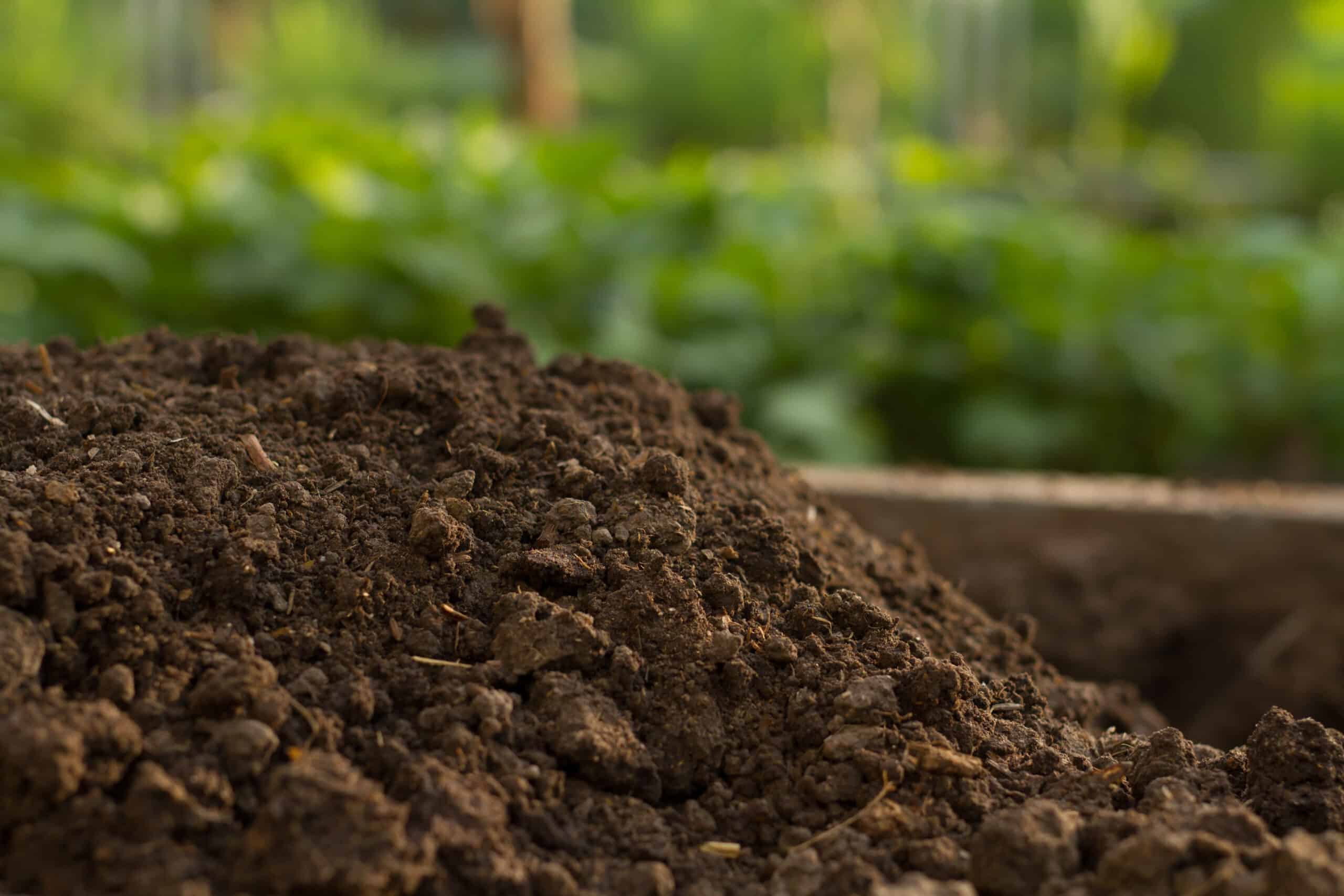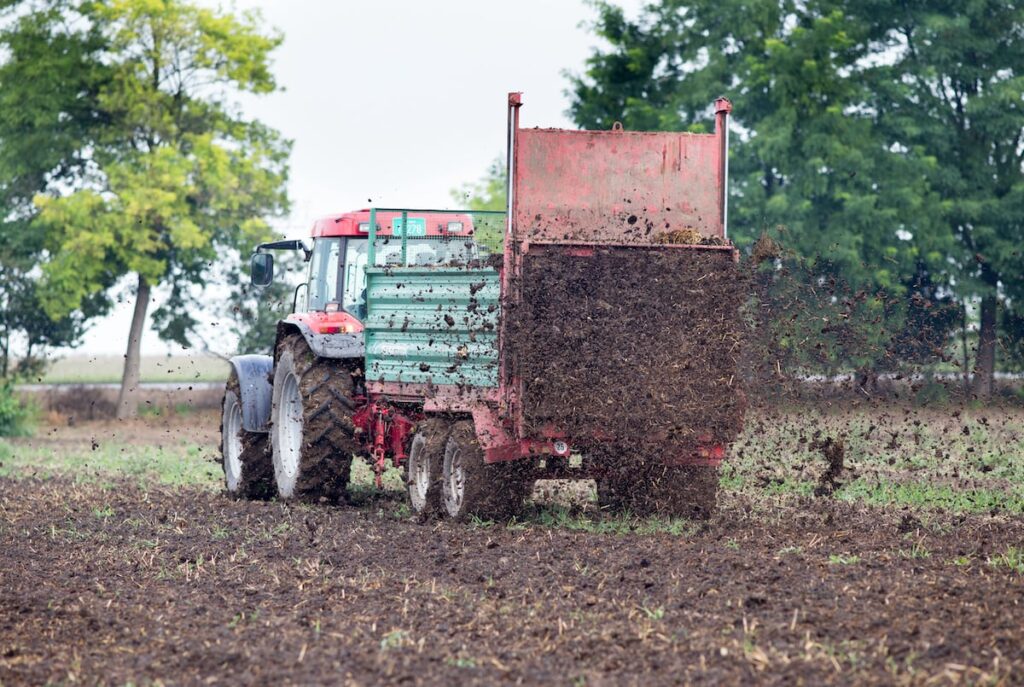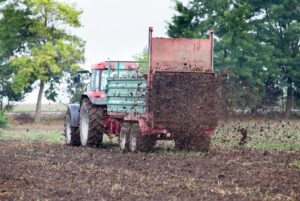Apr 25, 2024



More growers are exploring manure and compost to help fill their nutrient needs due to fertilizer shortages across the agriculture industry. Shortages and rising costs are forcing growers to look for more available and affordable options.
Manure and compost can act as a valuable nutrient source, especially in today’s market with the soaring fertilizer prices and limited availability globally. Compost and manure help maintain soil fertility, improve plant health, can increase crop yield, and can increase annual revenue. These organic fertilizers often cost less than synthetic fertilizer and can be found locally. For example, poultry litter currently costs between $15 – $60 per ton.
While manure and compost material can support a grower’s fertilizer program, it cannot generate the greatest potential return on their own. Without a healthy, diverse, and well-fed soil microbiome, crop yields will lose out on the valuable nutrients trapped in manure and compost material. Farms without an active, healthy soil microbiome will lose out on nutrient availability, thus affecting their overall ROI from the input.
That’s why it’s important to invest in microbial food in tandem with manure and compost practices.
Providing your soil microbiome with balanced nutrients supports soil health and quality, in addition to maximizing crop yield potential. After all, soil health is the foundation of sustainable agriculture.
Over 1 billion microbes exist in each teaspoon of soil. While they consist of many different types of microbes, two are especially important to plant and soil health: bacteria and fungi.
Bacteria break down nutrients in soil so they are accessible to plants. They also have a thick, glue-like layer around them to help create better soil texture and structure. This texture improves soil water filtration and productivity.
Fungi also break down nutrients in the soil so they are accessible to plants. They have an intricate root structure, known as mycelium, which moves vital nutrients to plants that need them most. In addition, the mycelium helps to improve soil texture and structure.
Unfortunately, most farm soil tests low for active microbes. A low active soil microbe count can happen for many reasons but is most often because microbes don’t have the vital nutrients they need to survive. When microbes begin to starve, they go dormant. And dormant microbes physically cannot unlock the nutrients in organic or synthetic fertilizers without the necessary nutrients to wake up and thrive.
Strategic carbon product application promotes a higher microbial growth in manure, compost, and synthetic fertilizer, and can make a significant difference in crop yield performance.
Nutrients available to plants are controlled by temperature, moisture, and food availability. Applying a layer of compost or manure in the spring or fall doesn’t guarantee your crop yields will be able to access all the nutrients within the organic fertilizer.
In fact, if you have an unhealthy or dormant microbe community, as many farms do, there’s a high likelihood a percentage of the nutrients within the manure and compost will go to waste.
Manure and compost-based nutrients are tied to carbon structure, and microbes control the release rate of nitrogen in these structures. Nutrients, like carbon, are found in organic fertilizer materials, like compost and manure. While carbon is the main source of energy for microbes, they also use Nitrogen (N).
When soil microbes consume carbon, N is released. This release of N is essential to support plant nutrient growth and development. The two types of N released are ammonium (NH4+) and nitrate (NO3-). This N-releasing process is called mineralization. Once the microbes release the nutrients, plants can then use the N for photosynthesis.
Soil microbes also provide the plants with a consistent nutrient release rate that allows for healthy growth. Compost and manure are slow-releasing, long-lasting nutrient solutions, especially when soil has a healthy, active microbiome. This means crops will get continual nutrients from only a few applications as the mineralization process continues to happen.
Compost and organic fertilizers are just one type of N source for plants. Others include crop residue, organic soil matter, and irrigation water. Microbes can mineralize all these unique N sources. Therefore, investing in a carbon product like PhycoTerra® goes beyond just breaking down manure and compost but rather supports your soil and yield goals throughout the year.
But that’s assuming the microbes are already awake and not dormant due to starvation.
If you haven’t been consistently feeding the microbes in your soil, there’s a high likelihood they aren’t active. Without active microbes, the added nutrients trapped in the organic fertilizer materials cannot be released to improve soil health and quality – two key factors to ensuring positive crop performance.

PhycoTerra® elevates the soil microbe count while also feeding and activating dormant, starving microbes. Our unique mode-of-action helps increase your micro-biodiversity, improves soil texture, and improves crop yield.
Plus, by activating your microbes to help break down manure, the chances of runoff, contaminating waterways, or creating algae blooms in local water sources is reduced.
When investing in carbon or biostimulant products, examine the big picture and focus on the full year, rather than just the growing season. Pair PhycoTerra® with manure and compost in the spring and fall. Feeding the microbes throughout the summer growing months will support crop yield, and feeding the microbes after harvest, before the hard freeze, can help manage crop residue without tillage.
Using PhycoTerra® also allows growers to improve soil quality, improve water holding capacity, optimize NPK availability, and boost crop yield and ROI.
Learn more on the benefits of adding PhycoTerra® to your compost and manure management programs.